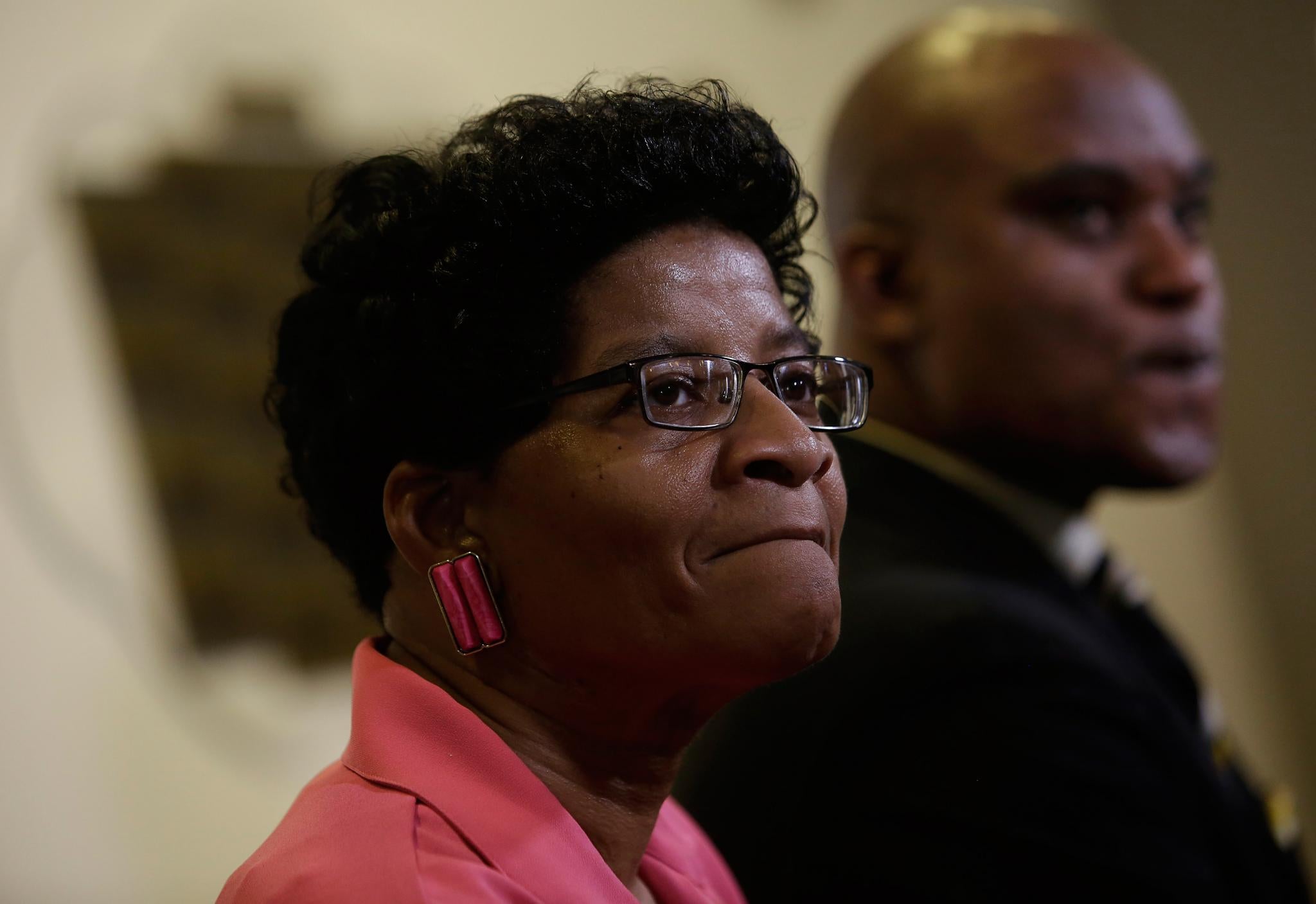
A collection of powerful Black women convened in Washington on Thursday and declared that our voices and stories will no longer be left out of policy discussions and decisions within the halls of Congress.
The Library of Congress Members Room was transformed into a meeting place for the inaugural symposium of the Congressional Caucus on Black Women and Girls, which was launched last month by U.S. Representatives Bonnie Watson-Coleman, Robin L. Kelly, and Yvette D. Clark. Though there are more than 400 Congressional caucuses, including groups that pursue legislative agendas focused on the lives of Black Men and Boys, Women, Former Mayors, law enforcement officials, and even a caucus for wine—theirs is the first to focus solely on issues facing Black women and girls.
Sandra Bland’s Mother Urges Activists To ‘Wake Up, Get Up, Step Up, Or Shut Up’
For far too long, several thought leaders said during testimony on Thursday, despite the fact that Black women and girls often face the same issues that their male counterparts face, we are “seen and not heard.”
“We face the same challenges,” said Dr. Kimberlé Crenshaw, a professor of law at UCLA and Columbia University. “But when it comes to agenda setting activities…we often disappear.”
The impact of that erasure is felt in a laundry list of statistics about the state of black American womanhood. As panelist and ESSENCE contributor Melissa Harris-Perry pointed out, while we graduate from high school and college and obtain postgraduate degrees at much higher rates than our Black male counterparts, Black women are paid 64 percent of what White men make, and have little to no wealth. Black women are also more likely to be unemployed than White women, her testimony revealed. And one in four Black women lives in poverty, a 2015 study by the National Coalition on Black Civic Participation found. Beyond our pocketbooks, injustice in the law enforcement space has a dire impact on women too—for evidence, those joining the panel had to look no further than Geneva Reed-Veal, the mother of 28-year-old Sandra Bland, who died in police custody last July.
Reed-Veal urged the Congress members gathered at the event to not allow it to become an episode that led to a lot of talk, and little action.
“We have to stop talking and move,” Reed-Veal said. “Get up, step up, or shut up.”
It’s Official: We Now Have a Congressional Caucus For Black Women and Girls
The women who testified before the caucus, as well as the many seated in the audience, had no interest in making simply paying lip-service to Black women’s issues. Presenters on both panels offered policy ideas and gave suggestions on how to move the conversation forward. During a question-and-answer session, an audience member called on the panel to address problems facing lesbian and transgender women in ongoing efforts. Rep. Kelly said their caucus has always been “all-inclusive,” despite the lack of explicit queer representation on Thursday morning’s panel.
Beverly Bond, the founder of the youth empowerment and awards program Black Girls Rock!, called on the Congress members to invite CEOs of certain media and cable outlets to testify before the caucus about the ways Black women and girls are portrayed in media. And Monique Morris, the co-founder of the National Black Women’s Justice Institute and author of “Pushout: The Criminalization of Black Girls in Schools” called for legislation that addresses the punishment bias young Black girls face in schools.
For Ifeoma Ike, a founding member of the #SheWoke campaign and the deputy director of New York City’s Young Men’s Initiative, the experience on Thursday was “overwhelming.” Ike told ESSENCE via telephone after that she had cried on a number of occasions throughout the day.
The #SheWoke campaign, a group of seven women who joined forces in the wake of Sandra Bland’s death to champion sisterhood, advocacy, and equity, was pivotal in prompting Rep. Robin Kelly and the other members to form the committee. Each of the founding members were recognized during the Thursday symposium. The caucus’ inaugural event, she said, was a great first step.
“I felt like we could have ran all day, which speaks to both the desire for this type of space but also just the excitement for something like this on a national scale,” Ike says. “I don’t look at this caucus as creating anything new per se as much as I see it as unifying and uniting what already exists.”